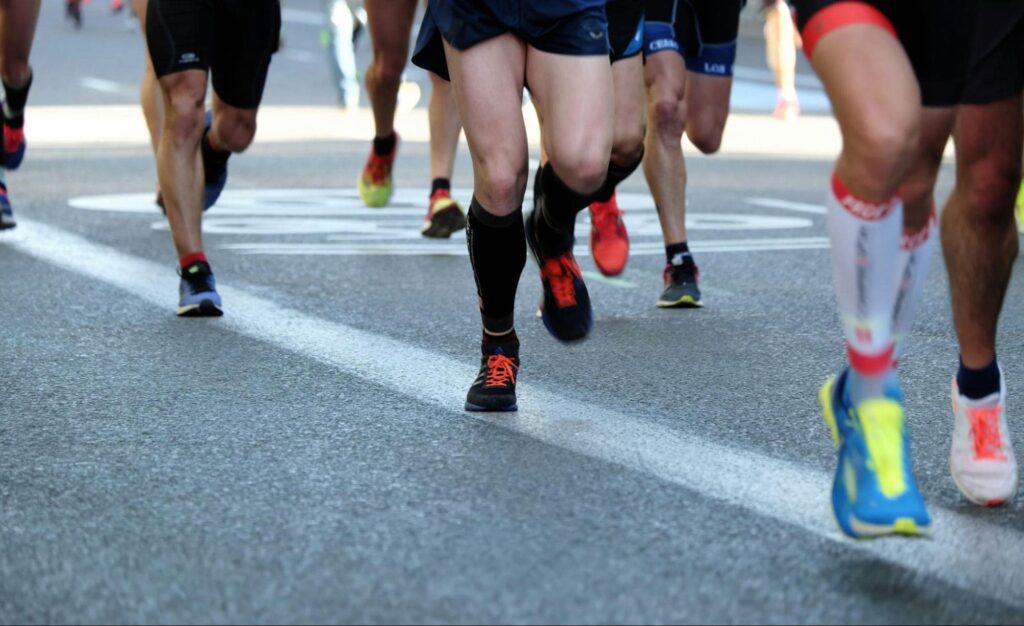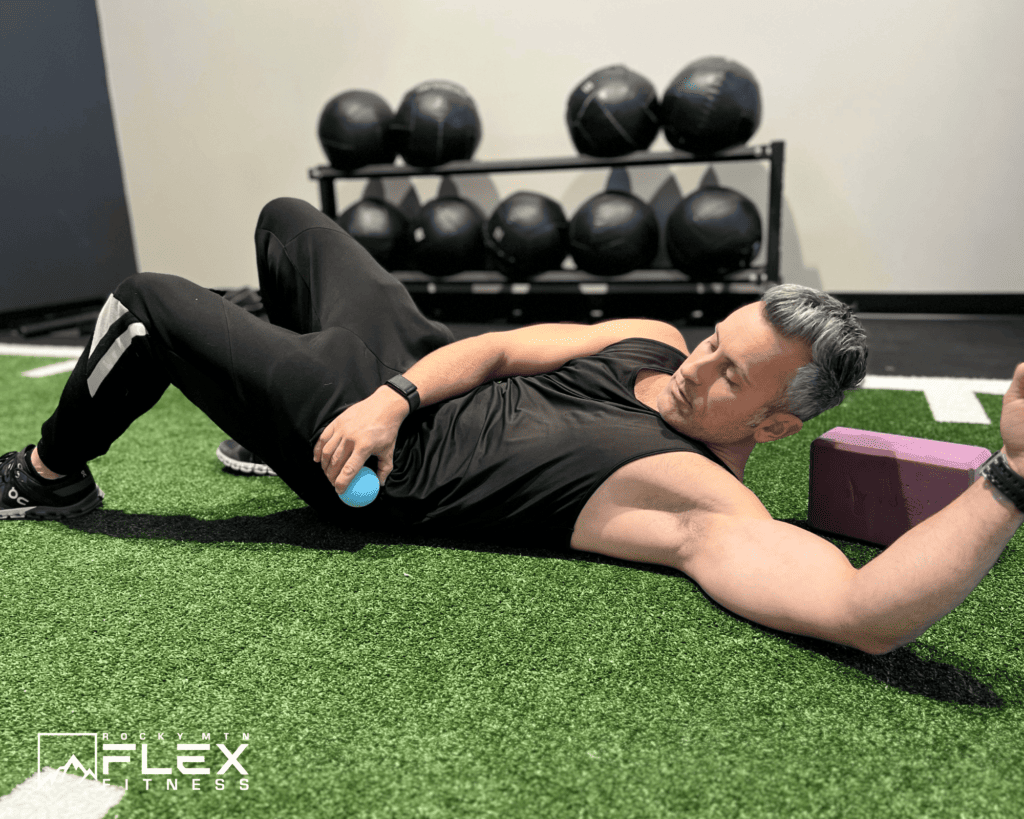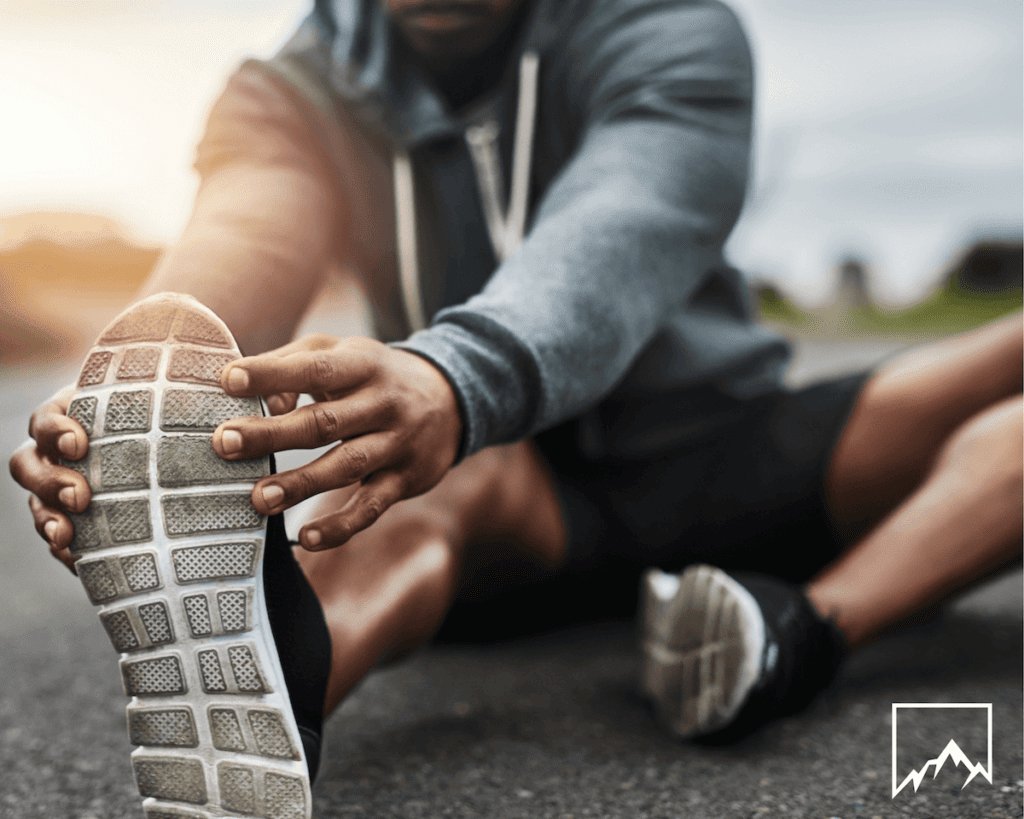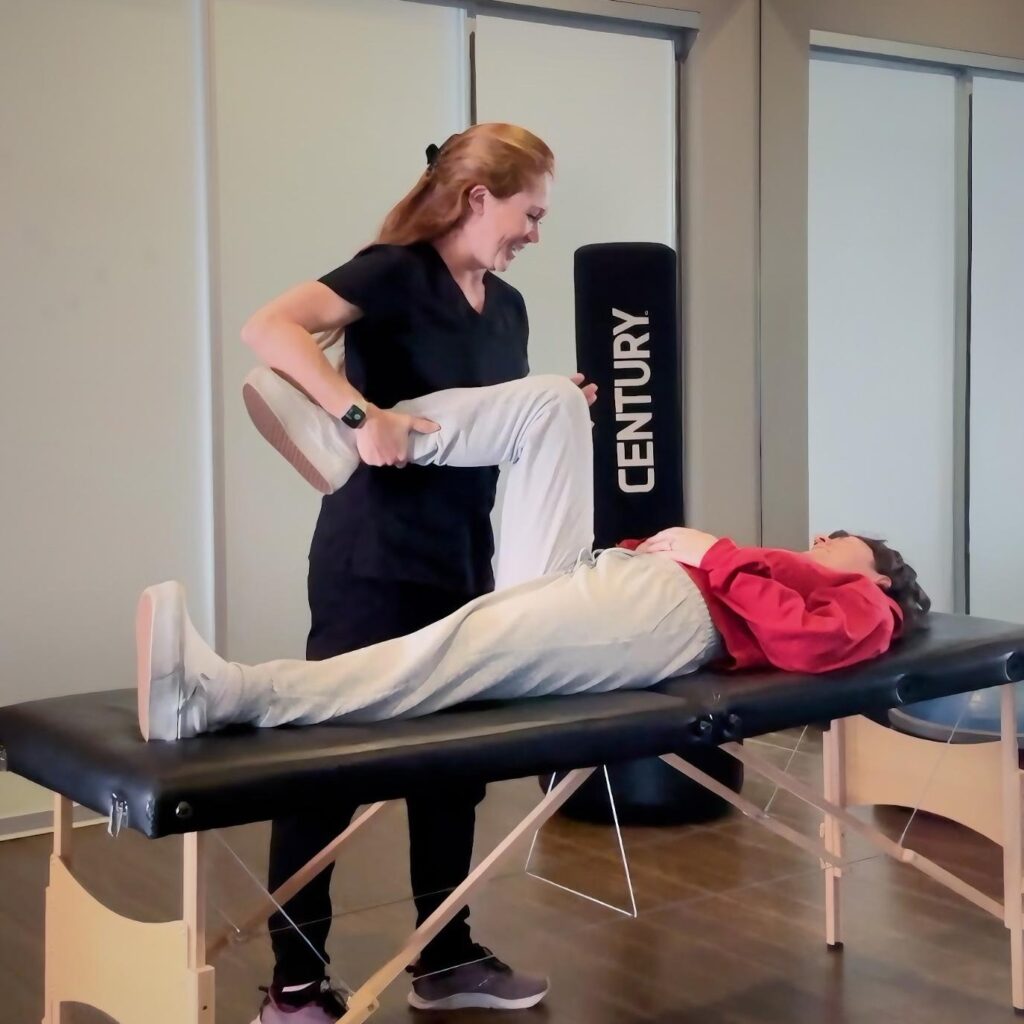At Rocky Mountain Flex, we know that reaching your health and strength goals requires more than just hard work in the gym—it requires quality recovery, too. And we aren’t just referring to recovery in the form of rest days, although you should always factor them into your weekly workout schedule. One of the most crucial aspects of recovery is sleep, yet it’s often overlooked. Quality sleep impacts everything from hormone regulation to weight loss, stress management, and muscle recovery and growth.
You can be doing all the right things—training hard, lifting weights, hitting your macros (especially protein), and taking supplements like essential amino acids and creatine—but if you’re not getting sufficient sleep, the foundation of your recovery, you’re limiting your progress.
Understanding the Sleep Cycles
Every night, your body undergoes multiple sleep cycles, each lasting approximately 90 minutes. These cycles consist of both non-REM and REM stages, each playing a crucial role in recovery:
Light Sleep (Stages 1 & 2): This initial phase is when you drift off and your body starts to relax. You can easily be awakened during this stage, but it’s essential for moving into deeper sleep.
Deep Sleep (Stage 3): This phase is critical for physical restoration. Here, your body focuses on repairing tissues, boosting your immune system, and releasing growth hormones that support muscle recovery and overall healing.
REM Sleep (Rapid Eye Movement): This is the stage where dreaming occurs, and your brain becomes more active. REM sleep is vital for cognitive processes, memory consolidation, and emotional health, helping you process experiences and learn effectively.
Both deep sleep and REM sleep are essential for comprehensive recovery—physically and mentally. Insufficient amounts of either can prevent your body and mind from getting the rejuvenation they need.
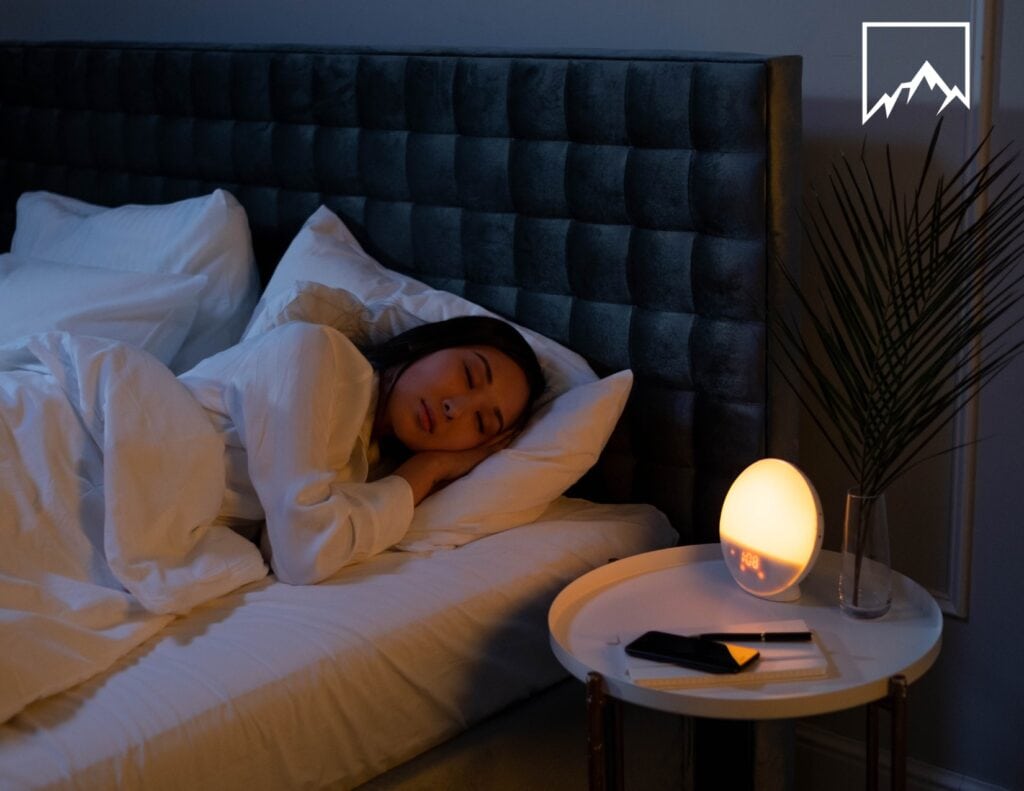
Why Sleep Matters
Sleep plays an essential role in regulating hormones that influence hunger, stress, and energy levels. It also has a direct impact on muscle recovery and overall physical performance. During sleep, your body goes into repair mode, restoring energy, healing muscle tissue, and releasing important hormones, including those necessary for muscle growth.
Leptin and Ghrelin: These hormones control hunger and fullness. When you don’t get enough sleep, your ghrelin levels (which increase hunger) rise, while leptin levels (which signal fullness) drop. This imbalance makes it harder to control cravings and can lead to overeating, negatively affecting your progress.
Cortisol: Sleep helps regulate cortisol, a stress hormone. High cortisol levels due to lack of sleep can interfere with muscle recovery, increase belly fat storage, and make you feel anxious. High cortisol can also raise stress levels, trigger cravings, and cause insomnia, creating a cycle that makes it harder to sleep well. Getting adequate sleep helps lower cortisol, leaving you more balanced and better equipped for your workouts and daily life.
Growth Hormone: Perhaps most importantly for those focused on muscle growth, sleep is when your body produces the majority of its growth hormone. Growth hormone is essential for repairing muscle tissue, building new muscle, and boosting recovery after exercise. Without enough sleep, your body can’t fully recover, which slows down muscle gains and increases the risk of injury.
The Benefits of a Good Night’s Sleep
Getting 7-9 hours of quality sleep each night doesn’t just improve how you feel—it can also have a profound effect on your physical and mental performance, muscle development, and how well you function at work and in your daily life.
Weight Loss: Studies have shown that sleeping over 8 hours per night can improve weight loss by up to 55% and maintain lean muscle mass by 60%. Sleep regulates your hunger hormones, making it easier to maintain a healthy diet and avoid overeating and late-night snacking.
Stronger Immune System: A well-rested body recovers faster and fights off illness more effectively. Sleep gives your immune system the time it needs to repair and recharge, which is especially important when you’re pushing your body in the gym and navigating the life demands of work, family, and other obligations.
Muscle Recovery and Growth: Muscle repair primarily happens during the deep stages of sleep. During this time, your body releases growth hormone, which is responsible for tissue growth and repair. If you’re skimping on sleep, your muscles can’t recover as efficiently, which means less progress from your workouts.
Mental Health and Brain Power: Proper sleep helps improve mental health by reducing stress, lowering anxiety, and keeping your mood balanced. It also supports higher-level cognitive functions such as decision-making, reasoning, and memory. When you’re well rested, you can think more clearly, tackle challenges with confidence, and maintain better focus throughout the day.
Practical Tips for Better Sleep
Here are some effective strategies to help improve your sleep quality and optimize muscle recovery:
Stick to a Regular Sleep Schedule:
Going to bed and waking up at the same time each day helps regulate your circadian rhythm, leading to better sleep quality. This not only enhances your body’s ability to recover from physical activity but also boosts overall energy levels, mood, and mental clarity so you can conquer the day. Being on a sleep schedule may take some getting used to and is especially challenging if you have a family, but do your best to set a schedule and get as close to your sleep and wake time as possible.
Limit Screen Time Before Bed:
Blue light from phones, computers, and TVs can suppress melatonin production, the hormone responsible for sleep, and make your brain think it’s daytime. Avoid screens for at least an hour before bed to help your body wind down naturally. If screen time is unavoidable, you may want to invest in blue-blocking glasses to filter blue light and cut down on the stimulating effects that keep you awake. Additionally, most smartphones now have a bedtime mode or night shift mode that will use warm tones for the screen and help filter the blue light.
Optimize Your Sleep Environment:
A cool, dark, and quiet bedroom promotes deeper sleep. Invest in a comfortable mattress or mattress topper and pillows, and make your sleeping space as relaxing as possible. An optimal bedroom temperature is 64-72 degrees.
If your bedroom gets a lot of light at night, then invest in blackout curtains to make your room as dark as possible. Additionally, you will want to eliminate any artificial light coming from electronics such as clocks, TVs, etc.
If sleeping in a quiet room gives too much room for your thoughts to creep in, try playing soft, soothing music. Try searching for ambient playlists on Spotify or other music apps.
Create a Pre-Sleep Routine:
Relaxing activities like reading, journaling, meditation, deep breathing, or light stretching can signal your body that it’s time to rest. This helps you fall asleep faster and improves overall sleep quality.
If your mind racing prevents you from falling asleep, you might benefit from doing a brain dump on paper to clear your mind. A hot shower or relaxing bath with ½ – 1 cup of Epsom salt (magnesium) may be just as effective.
Get Morning Sunlight Exposure:
Exposure to natural sunlight first thing in the morning helps regulate your body’s internal clock, which can improve sleep quality and duration. The light you receive throughout the day helps your body know when it’s time to wake up and go to sleep.
According to VeryWell Health, you are most sensitive to light one hour after you wake up, two hours before bedtime, and throughout the night. When you are exposed to bright light within two hours before bedtime, it can cause you to stay awake longer because you are less sleepy.
To benefit from sun exposure the most, you should aim for 30 minutes to an hour of sunlight in the morning. If your life demands don’t allow for longer exposure, even getting 5-10 minutes of sunlight first thing in the morning can make a big difference. Try taking your dog for a walk, eating breakfast outside, or going for a casual stroll around the neighborhood or your office. It’s recommended that you don’t wear sunglasses during this initial sunlight exposure.
Exercise for Better Sleep:
Getting some form of exercise daily helps you get a restful night’s sleep. Whether you’re lifting weights, taking a class, or doing cardio at Rocky Mountain Flex—or simply going for a long walk or hike—staying active promotes better sleep by helping you fall asleep faster, increasing deep, restorative sleep, and reducing stress. It also helps regulate your circadian rhythm, making it easier to maintain a consistent sleep schedule.
Things to Avoid Before Bedtime:
Drinking caffeine products, alcohol, too much liquid, or eating large meals too close to bedtime can disrupt your slumber. Try to avoid eating within 3 hours of bedtime as this will stimulate your digestion and signal your body to stay awake.
Alcohol may help you fall asleep faster, but it disrupts the quality of your sleep by reducing REM sleep, causing more frequent wake-ups throughout the night, and interfering with your body’s ability to regulate temperature and breathing
Caffeine tricks your body into thinking it’s not tired and potentially has a half-life of 5-7 hours. So if you are drinking caffeine throughout the day, you might want to do the math to determine roughly how long it will take you to metabolize that cup of Joe before bedtime. Lastly, drinking too much liquid too close to bedtime can cause you to wake up several times throughout the night and could potentially cause issues with going back to sleep.
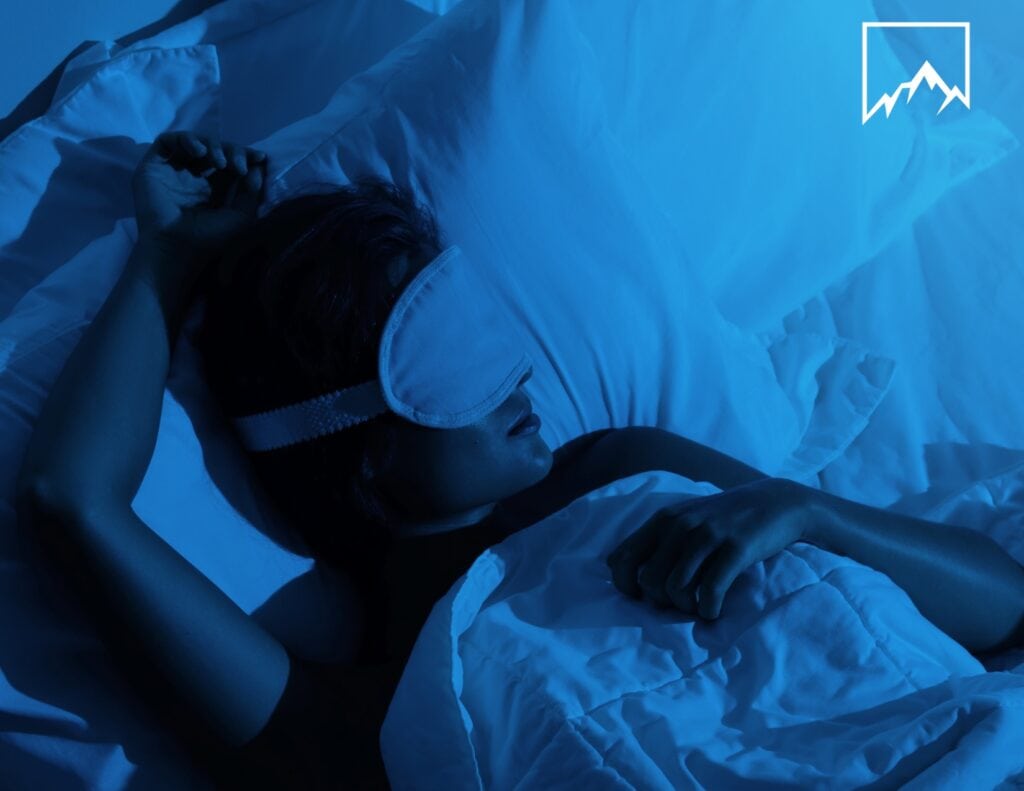
Sleep isn’t just about feeling rested; it’s a key player in improving your overall health both mentally and physically. At Rocky Mountain Flex, we know that quality sleep is crucial for muscle recovery, performance, and even your immune system. When you sleep deeply, your body goes into repair mode, releasing growth hormones that help rebuild and strengthen your muscles. Plus, getting enough sleep balances hormones, helping you manage weight, reduce cravings, and prevent overeating. It also reduces stress and boosts mental clarity, enabling you to tackle your day with focus and energy.
If you aren’t quite sure how well you are sleeping throughout the night, you might want to invest in a wearable such as the Oura Ring or the Whoop. These devices will help you understand the quality of sleep you are getting, how long you stay in each of the sleep cycles, and how your workouts sleep, and other factors combined are affecting your recovery.
Prioritizing sleep can boost your performance in every aspect of life. If you’re struggling to reach your goals, poor sleep might be the reason. Insufficient rest can hinder your productivity, learning, and overall ability to crush the day, so make sure you’re getting quality Zzz’s!





